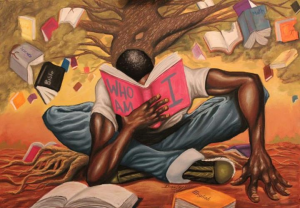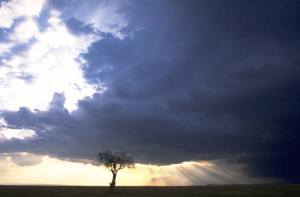The first time I felt terribly alone in the world I was about eleven years old and I was standing in The Children’s Place clothing store surrounded by orange, pink, and yellow chunky bracelets, black and white polka dot skirts, shiny black patent leather shoes, colorful striped socks, and plastic ruby red necklaces.
I was shopping with my cousins, my mother’s sister’s daughters. We had a sleepover the night before and they’d decided to go the mall and shop the next day. I was excited to sleep over with my female cousins because being the only girl in my nuclear family I didn’t have any sister’s to hang out with at home.
As I stood under the recessed lighting in the sparkly mall store I felt the urge to shop. My cousins were buying them back-to-school clothes. I looked over and my cousin Michelle was trying on a brown chunky necklace and a cinnamon top. “Does this look good together?” She asked me.
I shook my head and smiled. “Yes…it looks great.”
I was smiling but inside there was a prickly gloom under my skin. I wanted to be girly and try things on too. Though I was with my cousins and my Aunt, I wasn’t “in” the way I wanted to be. I couldn’t buy anything. And since I couldn’t buy, I didn’t want to act delusional and browse. My Aunt, who was known back then as being scrupulous with her finances, was on a strict budget and would not veer from that path just placate her tag along niece.
It wasn’t that I expected anything; it was just then, in that moment, I realized that I was different. I felt separated from my cousins, my family, and from being a normal girl.

If I didn’t fit in with my cousins, then who could I fit in with? Most economically disadvantaged youth joined some type of social segment to keep them afloat. As a kid I searched for a group to validate my existence and make me forget about poverty. There was the weed heads that skipped school and spent their days searching for money to buy more weed. There were the open girls who were desperately trying to find a father so they slept with boys looking for love and attention. There were the fighter girls who thrived on overly dramatic displays of anger and wild fist fights. There were the klepto-girls who loved to steal high priced items and then brag about conquests. There was a smart crowd at my school, you know, the Honor Roll kids who took their education seriously. But I wasn’t on Honor Roll and unfortunately I didn’t feel like I was smart enough to hang with them. None of those groups fit my personality. And none of those groups appealed to a deeper truth hidden inside of me. So there I sat, left out in the cold alone. No group to call my own. There under the bright lighting of the mall store I felt like I belonged nowhere.
I followed my cousins out of the store that day with my head hanging low. I sulked behind them as we waded through the mall. They clenched their bright bags and talked excitedly about their new outfits meanwhile I felt like an empty handed alien along for the ride. Walking through the mall with them was the walk of shame. I felt like people were looking at me and wondering where my bags were. Why didn’t I shop like the other young girls? Why wasn’t I smiling? Why was I different?
I have contemplated many ways to fit in. I didn’t know it then but back in my youth I behaved somewhat like an anthropology student. I hung out with my different groups auditing their behaviors and testing the waters. I guess it’s just part of growing up and experimenting with different things. I knew what the weed heads did because I was around them when they did it. The open girls loved to talk about sex and love and thought that both had equal meaning. The fighter girls were plotting their next brawl while the Honor Roll girls were busy being ogled by adults.
I didn’t like any of it but what else did I have? That’s when I looked to books for comfort. I started reading to escape the world that didn’t include girls like me. I didn’t steal, or fight, or think that a boy loved me because I could give him an orgasm.
I was poor.
Check.
I was black.
Check.
I was female.
Check.
But what else was I? I know at age eleven one is not supposed to know who they are but at least one is supposed to have some sense of fun, community and connectivity to a group. And forget about playing a sport, an instrument, or enrolling in a dance class. I didn’t even know what an extracurricular activity was when I was a youth.
 The most painful part of being a Black American is the fact that our history stops at slavery. Many African-Americans know nothing beyond that their people were once slaves. We don’t know our African tribal languages or rituals. Our ancestors were so terrorized by slavery that survival was the only imperative. Documenting their past wasn’t high on the agenda of a black American slave. So the past went undocumented and soon unspoken of and then completely lost.
The most painful part of being a Black American is the fact that our history stops at slavery. Many African-Americans know nothing beyond that their people were once slaves. We don’t know our African tribal languages or rituals. Our ancestors were so terrorized by slavery that survival was the only imperative. Documenting their past wasn’t high on the agenda of a black American slave. So the past went undocumented and soon unspoken of and then completely lost.


